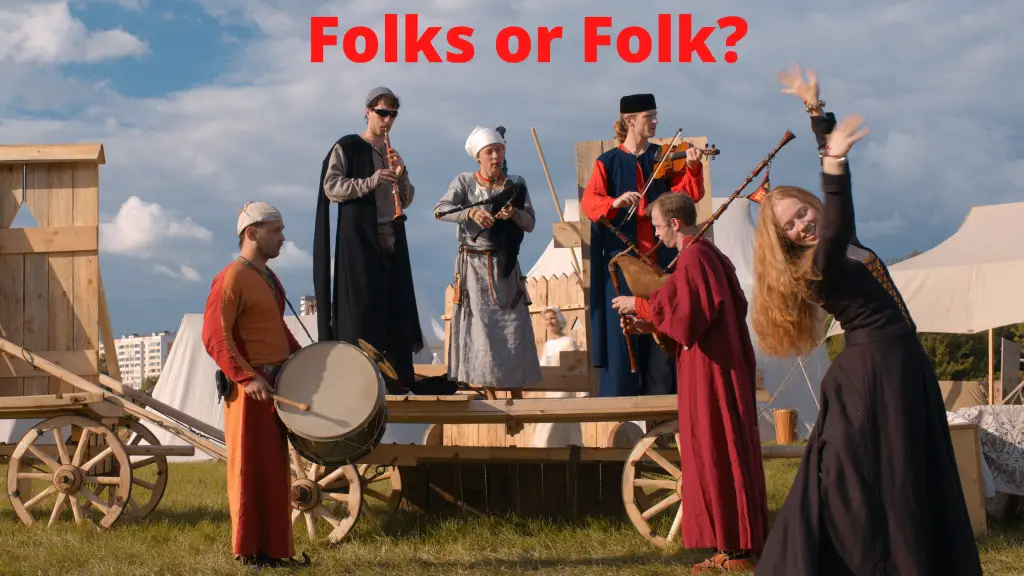Practice English or Spanish with AI here
Folk and Folks can have different meanings depending on where you are in the world and folk can be both a noun and an adjective.
Folk and Folks are both options to use as a plural way to say “people”. Folk and Folks are never used in the singular, there is no equivalent of “person”. When we use the words folk or folks, we are talking about a group of people.
In American English, folk and folks can both mean a group of people with a small difference.
“Folk” is a collective noun and refers to a group of people in general.
“Folks” is a group of individuals.
In some situations, you can use either folk or folks but in other situations, it can be best to use folk or folks.
Examples:
Some folks think that money grows on trees.
The folk in this town always drink too much.
In British English, “folks” also means people but it also means “parents”. In my experience in the U.K and Ireland, we use “folks” much more often to mean parents than people.
My folks are from the North of England.
Folk as an adjective
Folk as an adjective is a descriptive word to describe traditional culture and people.
We are using a folk recipe from Peru.
Ned Kelly is an Australian folk hero.
Is Folk plural or singular?
“Folk” is a plural collective noun. There is no singular form.
These folk are from Denver.
Should I use Folk or Folks?
“Folks” as a noun is far more common than “Folk”.
You hear it quite often when people are describing people.
What’s going on folks?
How are you doing folks?
These examples are much more common in informal spoken English.
“Folk” is a common adjective when you want to describe culture, food, or music
- 10 Words or Phrases “To Make Her Feel Special” - October 16, 2024
- Synonym Generator - September 11, 2024
- [BrutallyHonest] Langua AI Review – Can you learn a language with AI? - April 23, 2024


